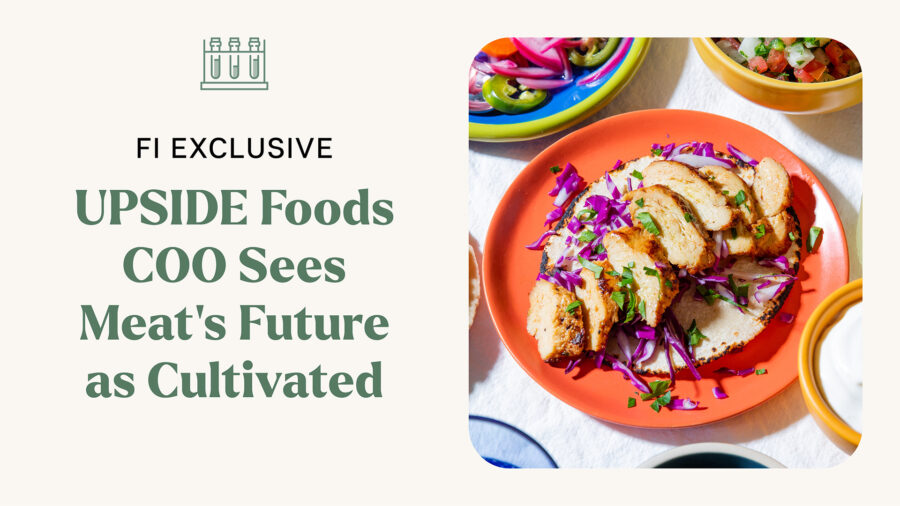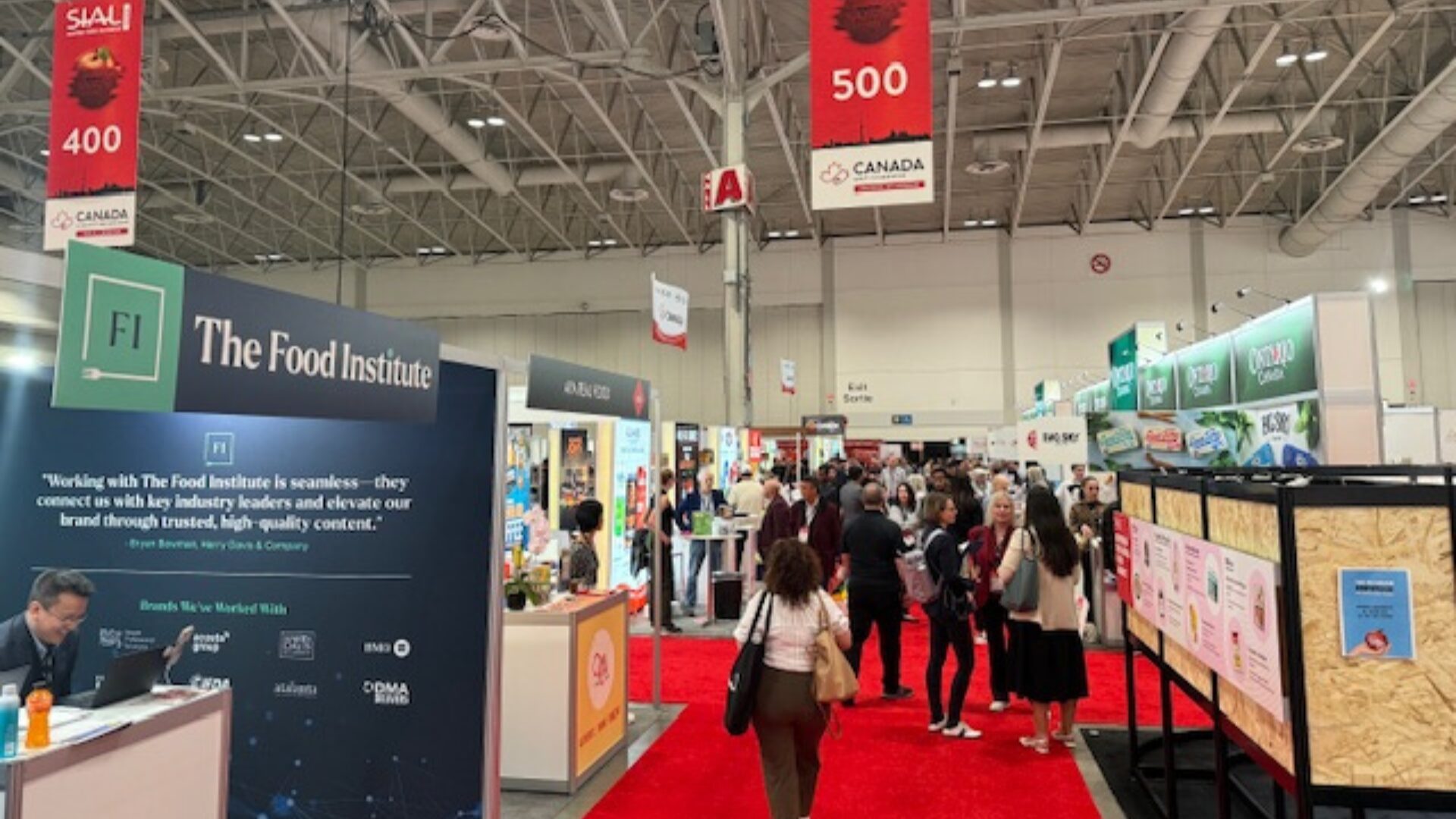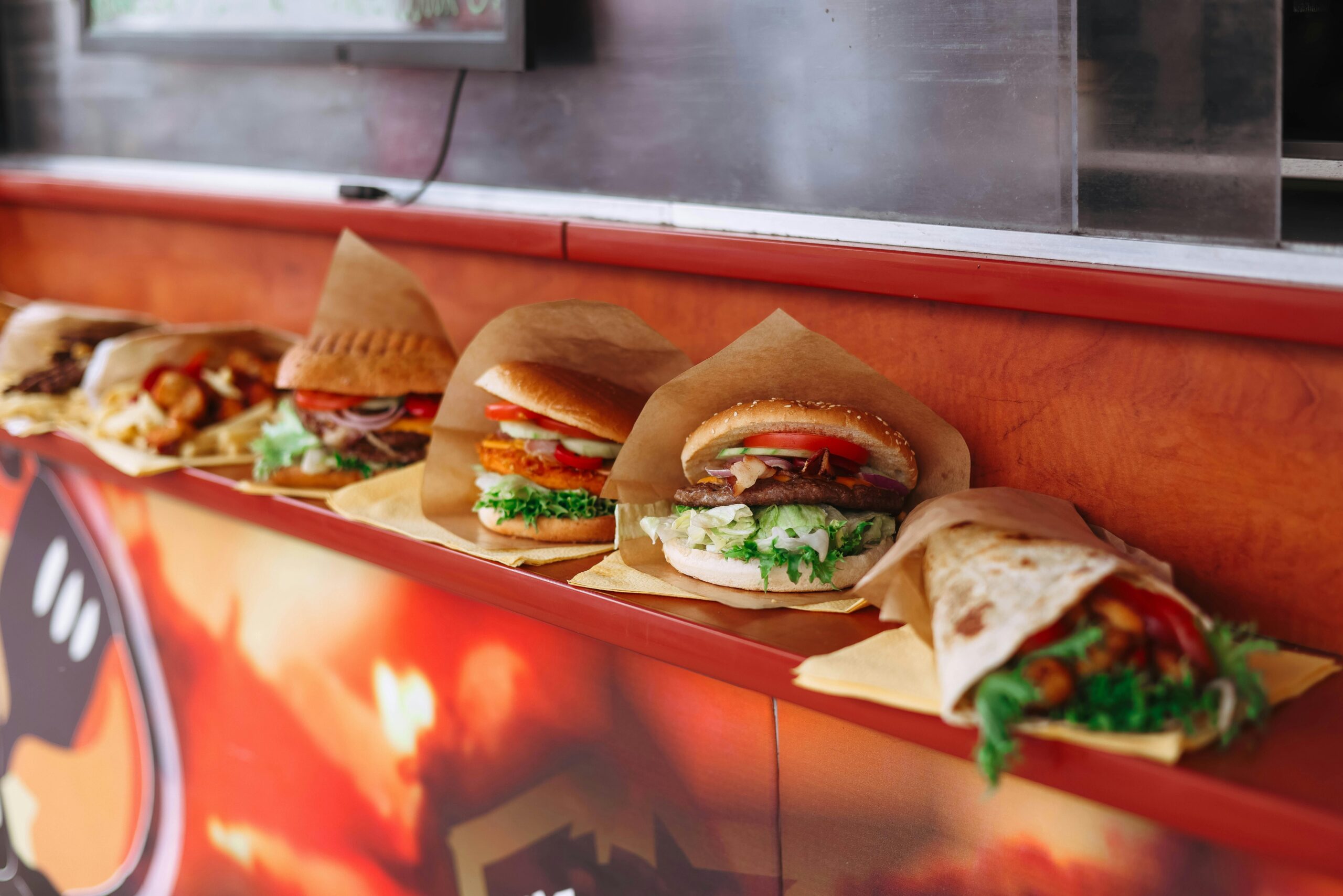The future of meat is not in factory farms or feedlots, says Amy Chen. Rather the future is a growing facility where cells are taken from an embryo and cultivated to produce a chicken breast, steak or lobster feast in just a few weeks.
The U.S. Environmental Protection Agency estimates agriculture was responsible for 10% of greenhouse gas emissions in 2021, with meat production responsible for more than half that percentage.
Chen, chief operating officer for UPSIDE Foods, told The Food Institute in a recent interview the company’s process for cultivating meat could have not only a major impact on food production, but also on the environment.
“Cultivated meat production holds the promise of allowing people to keep eating the meat they have loved and, at the same time, bring that same meat to the table that’s really different that people can feel great about,” Chen said.
Landmark Moment
UPSIDE recently introduced its cultivated chicken breast at vegetarian restaurant Bar Crenn in San Francisco. The meat was fried in a Recado Negro-infused tempura batter and served with burnt chili aioli and garnished with edible flowers and greens that came from Chef Dominique Crenn’s Bleu Belle Farm.
It was the first time Crenn had served meat at her eatery since going vegetarian in 2018, a shift prompted by her concerns over the effects of conventional meat production.
Chen describes UPSIDE’s cultivated chicken as tasting succulent like dark meat but with the fat profile of white meat. The product is grown from cells, fibroblasts, taken from a chicken embryo. The cultivated breast is ready to cook in two or three weeks, compared to two or three months for growing chicken conventionally.
Potential Impact on the Industry
“The implications of cultivated meat are large,” said Chen, who has a chemistry background and came to UPSIDE’s predecessor, Memphis Meats, from Pepsico.
“This has the potential to transform one of the largest industries in the world. Cultivated meat offers the ability to bring meat people love to the table but is more environmentally friendly.”
Chen noted that the possibilities are being embraced by some of the larger agriculture companies like Tyson and Cargill.
UPSIDE’s Engineering, Production and Innovation Center, which sits in the middle of a neighborhood, can produce 50,000 pounds of cultivated chicken a year and could scale up to 100,000 pounds. The company will concentrate initially on production for foodservice and restaurants, with retail sales likely at least five to 10 years away.
Editor’s Note: This is part one of two articles exploring cultivated meat developments. Part two highlights the outlook for the plant-based meat alternative market on the heels of USDA’s approval of cultivated meat sales in the U.S.












